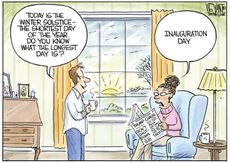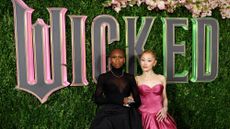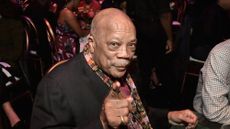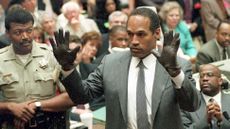This lawsuit against Pokémon Go isn't as crazy as it might sound


Scott Dodich and Jayme Gotts-Dodich have a clear message for the Pokémon Go players who have invaded their local park and private cul-de-sac in St. Clair Shores, Michigan: Get off of their lawn! Also, don't park in front of their driveway and those of their neighbors, and don't trample their landscaping and look in their windows — and, when they ask you to leave their property, don't yell, "Shut up b****, or else," as one Pokémon Go fan did, according to a federal class action lawsuit the Dodiches filed against three companies that make, sell, or own Pokémon Go: Niantic, Nintendo, and Pokemon Co.
"Nobody gets sleep anymore," says the lawsuit, filed Aug. 10 in U.S. District Court in San Francisco. Pokémon players "hang out on our lawns, trample landscaping, look in vehicles... We don't feel safe... I don't feel safe sitting on our porch." This is Niantic's fault, the Dodich suit claims, because the company places Pokéstops and Pokémon gyms (GPS coordinates where the virtual creatures appear) on or near private property with "a flagrant disregard for the foreseeable consequences of populating the real world with virtual Pokémon without seeking the permission of property owners."
And Niantic knows this, the Dodiches say, pointing to a warning on the company website: "If you can't get to the Pokéstop because it's on private property, there will be more just around the corner, so don't worry!" The couple says they contacted the company and its CEO several times before the lawsuit, receiving only form letters promising some response that, as of the lawsuit's filing, hadn't materialized. Niantic, Nintendo, and Pokémon did not respond when the Detroit Free Press reached out for comment on Monday.
Subscribe to The Week
Escape your echo chamber. Get the facts behind the news, plus analysis from multiple perspectives.

Sign up for The Week's Free Newsletters
From our morning news briefing to a weekly Good News Newsletter, get the best of The Week delivered directly to your inbox.
From our morning news briefing to a weekly Good News Newsletter, get the best of The Week delivered directly to your inbox.
The Dodiches asked for a jury trial, according to the lawsuit, which you can read at Detroit's WDIV. That's risky, given how many people love the virtual creature hunt. But if they get a jury of people who agree that it's not okay for random people to trample through your private land, Niantic and its codefendants might be out some serious cash. The Dodich suit already pointed to some public cases of Pokéstops programmed in inappropriate or private locales, so the class might be large.
Sign up for Today's Best Articles in your inbox
A free daily email with the biggest news stories of the day – and the best features from TheWeek.com
Peter has worked as a news and culture writer and editor at The Week since the site's launch in 2008. He covers politics, world affairs, religion and cultural currents. His journalism career began as a copy editor at a financial newswire and has included editorial positions at The New York Times Magazine, Facts on File, and Oregon State University.
-
 Today's political cartoons - December 22, 2024
Today's political cartoons - December 22, 2024Cartoons Sunday's cartoons - the long and short of it, trigger finger, and more
By The Week US Published
-
 5 hilariously spirited cartoons about the spirit of Christmas
5 hilariously spirited cartoons about the spirit of ChristmasCartoons Artists take on excuses, pardons, and more
By The Week US Published
-
 Inside the house of Assad
Inside the house of AssadThe Explainer Bashar al-Assad and his father, Hafez, ruled Syria for more than half a century but how did one family achieve and maintain power?
By The Week UK Published
-
 Honda and Nissan in merger talks
Honda and Nissan in merger talksSpeed Read The companies are currently Japan's second and third-biggest automakers, respectively
By Peter Weber, The Week US Published
-
 Taylor Swift wraps up record-shattering Eras tour
Taylor Swift wraps up record-shattering Eras tourSpeed Read The pop star finally ended her long-running tour in Vancouver, Canada
By Peter Weber, The Week US Published
-
 Drake claims illegal boosting, defamation
Drake claims illegal boosting, defamationSpeed Read The rapper accused Universal Music of boosting Kendrick Lamar's diss track and said UMG allowed him to be falsely accused of pedophilia
By Rafi Schwartz, The Week US Published
-
 'Wicked' and 'Gladiator II' ignite holiday box office
'Wicked' and 'Gladiator II' ignite holiday box officeSpeed Read The combination of the two movies revitalized a struggling box office
By Peter Weber, The Week US Published
-
 Jussie Smollet conviction overturned on appeal
Jussie Smollet conviction overturned on appealSpeed Read The Illinois Supreme Court overturned the actor's conviction on charges of staging a racist and homophobic attack against himself in 2019
By Peter Weber, The Week US Published
-
 Quincy Jones, music icon, is dead at 91
Quincy Jones, music icon, is dead at 91Speed Read The legendary producer is perhaps best known as the architect behind Michael Jackson's 'Thriller'
By Peter Weber, The Week US Published
-
 OJ Simpson, star athlete tried for murder, dead at 76
OJ Simpson, star athlete tried for murder, dead at 76Speed Read The former football hero and murder suspect lost his battle with cancer
By Rafi Schwartz, The Week US Published
-
 Momofuku's 'Chili Crunch' trademark uproar
Momofuku's 'Chili Crunch' trademark uproarSpeed Read The company's attempt to own the sole rights has prompted backlash
By Rafi Schwartz, The Week US Published